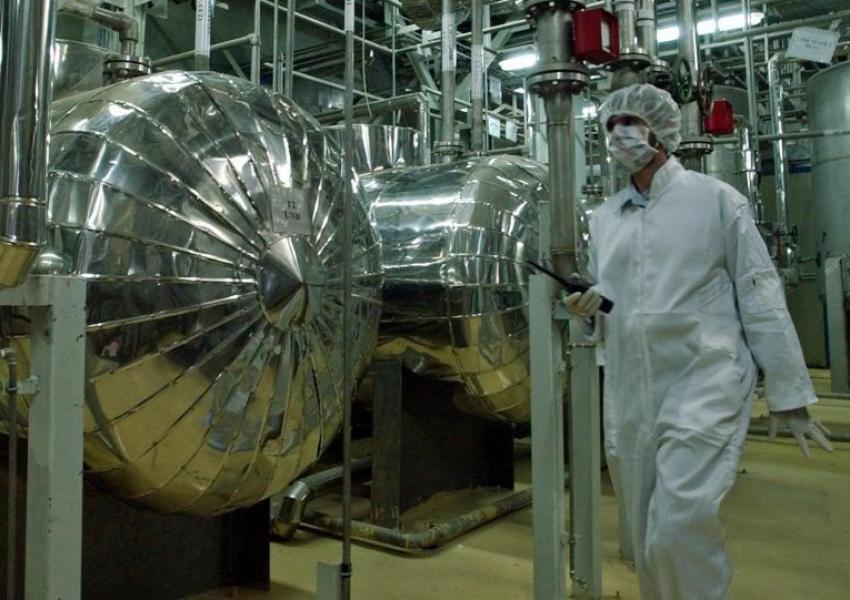
European Powers Warn Iran Over 'Dangerous' Uranium Enrichment Move
Germany, France and the United Kingdom, signatories of the 2015 troubled Iran nuclear agreement, have told Iran on Wednesday that its decision to enrich uranium at 60 percent purity, bringing the fissile material closer to bomb-grade, was contrary to efforts to revive accord.
Iran announced Tuesday that in retaliation to what it said was an Israeli sabotage act at its Natanz enrichment facility it will increase the level of enrichment and crank up advanced centrifuges, banned by the Joint Comprehensive Plan of Action (JCPOA), signed with world powers.
The three European countries also indirectly criticized Israel, saying that they reject “all escalatory measures by any actor”. Israel has not formally commented on the incident at Natanz. But it is widely believed that Israel has been conducting a covert war against Iran’s nuclear program for years, as Iranian officials have repeatedly vowed to wipe the Jewish state off the map.
The Natanz incident in which its power-generation plant was targeted resulting in reported explosions and fire, could impact talks in Vienna that began last week to revive the JCPOA, after the US abandoned the deal in 2018 and in response Iran began violating since 2019.
But Britain, France and Germany said Tehran's new decision to enrich at 60 percent and activate 1,000 advanced centrifuge machines at its underground Natanz plant, was not based on credible civilian reasons and constituted an important step towards the production of a nuclear weapon.
"Iran's announcements are particularly regrettable given they come at a time when all JCPoA (Joint Comprehensive Plan of Action) participants and the United States have started substantive discussions, with the objective of finding a rapid diplomatic solution to revitalise and restore the JCPoA," the three countries said in a statement, referring to the 2015 deal.
The United States has also condemned Iran’s latest action, calling it “provocative”.
“We take seriously Iran’s provocative announcement of its intention to begin enriching uranium to 60 percent, which the P5+1 should be unified in rejecting. This step both calls into question Iran’s seriousness with regard to the nuclear talks and underscores the imperative of returning to mutual compliance with the JCPOA.”
However, two other members of P5+1, Russia and China, both allies of Iran, have so far refrained from criticizing Tehran.
Iranian President Hassan Rouhani said the decision to raise the enrichment level was a response to Sunday's sabotage, adding Tehran had no intention of building a nuclear weapon.
"Of course, the security and intelligence officials must give the final reports, but apparently it is the crime of the Zionists, and if the Zionists act against our nation, we will answer it," Rouhani said in a televised cabinet meeting.
In an apparent reference to the incident and Iran's response, the European statement said: "In light of recent developments, we reject all escalatory measures by any actor, and we call upon Iran not to further complicate the diplomatic process."
Biden took office in January with a commitment to rejoin the pact if Tehran returns to full compliance with the deal.
But those efforts have coincided with rising tensions between Iran and Israel, amid a series of reported attacks on Israeli- or Iranian-owned ships since late February, for which the two sides have each accused the other of being responsible.
Iran's leading Gulf foe Saudi Arabia also weighed in on Wednesday, saying Iran's decision on 60% enrichment could not be seen as part of a peaceful nuclear energy program.
Riyadh again urged the international community to seek an agreement "with stronger parameters of a longer duration".
The International Atomic Energy Agency (IAEA) announced that its inspectors in Iran have visited the Natanz site on Wednesday but did not provide any information of what they observed. “The IAEA will continue to report on relevant developments regarding Iran’s nuclear program” to the Board of Governors”, the UN nuclear watchdog said.
With reporting by Reuters





